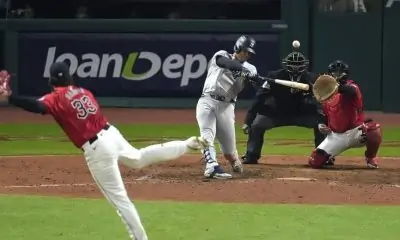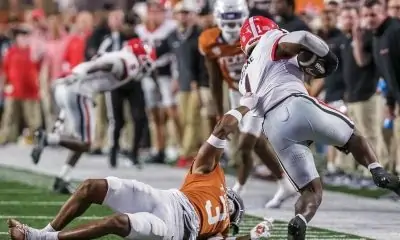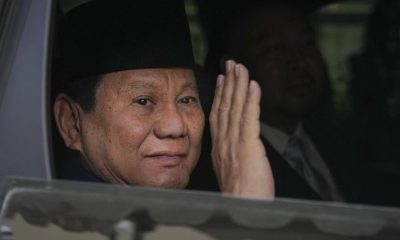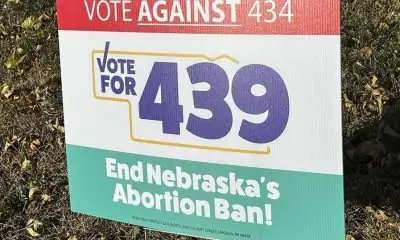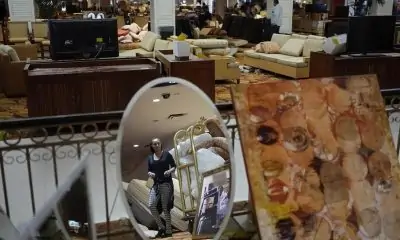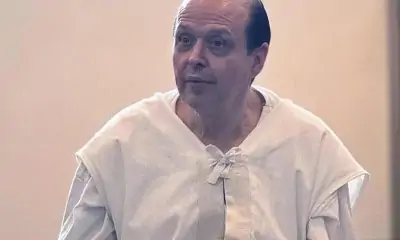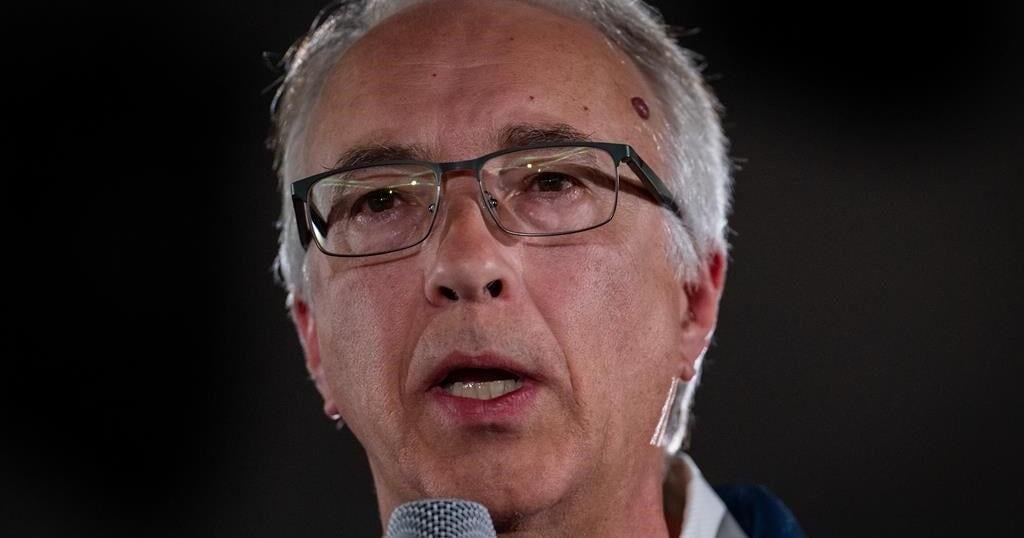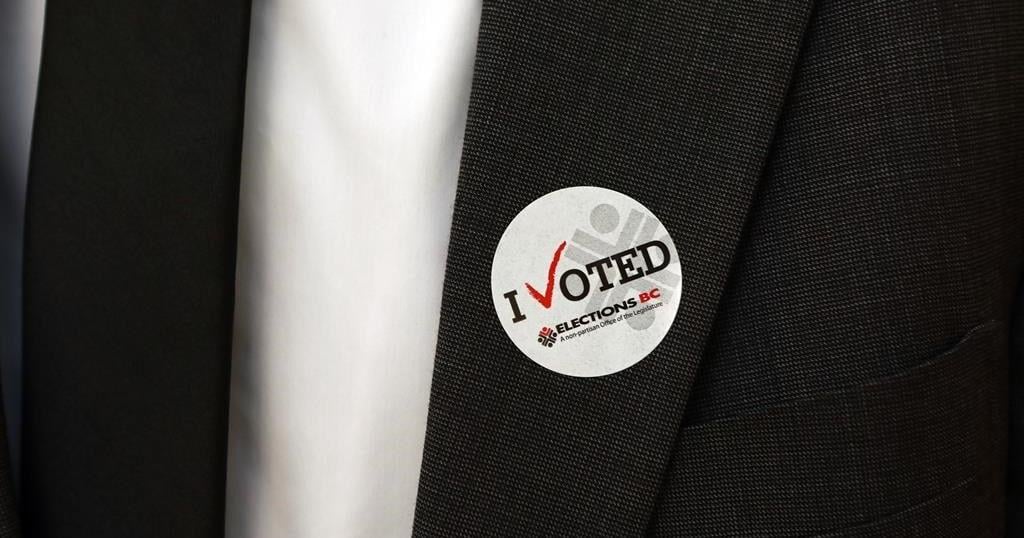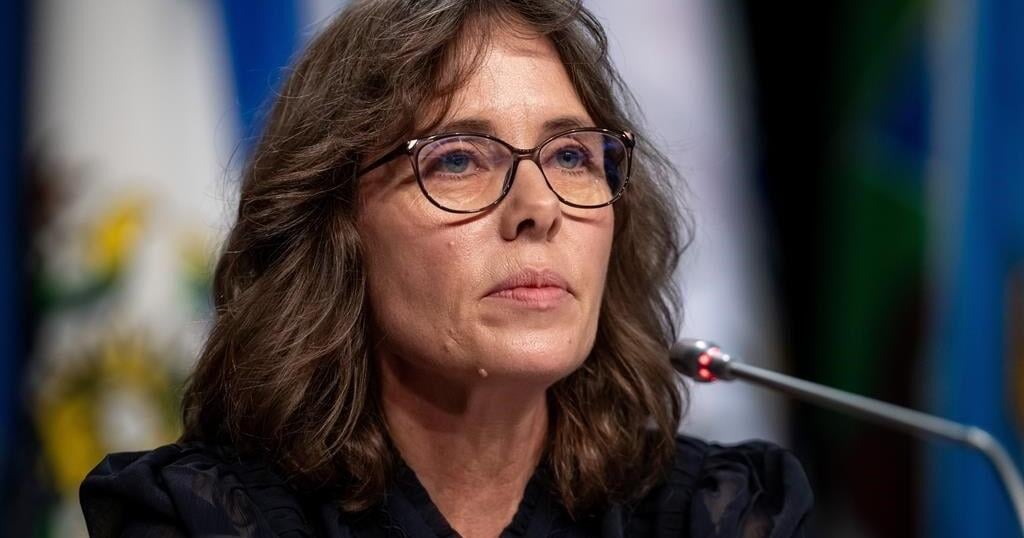VANCOUVER – Predictions of a close election were holding true in British Columbia on Saturday, with early returns showing the New Democrats and the B.C. Conservatives neck and neck.
Conservative Leader John Rustad was elected in Nechako Lakes, and 20 minutes after polls closed, his party was elected or leading in 46 ridings, with the NDP elected or leading in 45.
Among the early winners were the NDP’s Ravi Kahlon in Delta North and Niki Sharma in Vancouver-Hastings, as well as the Conservatives’ Bruce Banman in Abbotsford South.
It was a rain-drenched election day in much of the province.
Voters braved high winds and torrential downpours brought by an atmospheric river weather system that forced closures of several polling stations due to power outages.
Residents faced a choice for the next government that would have seemed unthinkable just a few months ago, between the incumbent New Democrats led by David Eby and Rustad’s B.C. Conservatives, who received less than two per cent of the vote last election
Green Leader Sonia Furstenau has acknowledged her party won’t win, but she’s hoping to retain a presence in the legislature, where the party currently has two members.
Elections BC has said results are expected quickly, with electronic vote tabulation being used provincewide for the first time.
The election authority expected most votes to be counted by about 8:30 p.m., and that the count would be “substantially complete” within another half-hour.
Six new seats have been added since the last provincial election, and to win a majority, a party must secure 47 seats in the 93-seat legislature.
There had already been a big turnout before election day on Saturday, with more than a million advance votes cast, representing more than 28 per cent of valid voters and smashing the previous record for early polling.
The wild weather on election day was appropriate for such a tumultuous campaign.
Once considered a fringe player in provincial politics, the B.C. Conservatives stand on the brink of forming government or becoming the official Opposition.
Rustad’s unlikely rise came after he was thrown out of the Opposition, then known as the BC Liberals, joined the Conservatives as leader, and steered them to a level of popularity that led to the collapse of his old party, now called BC United — all in just two years.
Rustad shared a photo on social media Saturday showing himself smiling and walking with his wife at a voting station, with a message saying, “This is the first time Kim and I have voted for the Conservative Party of BC!”
Eby, who voted earlier in the week, posted a message on social media Saturday telling voters to “grab an umbrella and stay safe.”
Two voting sites in Cariboo-Chilcotin in the B.C. Interior and one in Maple Ridge in the Lower Mainland were closed due to power cuts, Elections BC said, while several sites in Kamloops, Langley and Port Moody, as well as on Hornby, Denman and Mayne islands, were temporarily shut but reopened by mid-afternoon.
Karin Kirkpatrick, who is running for re-election as an Independent in West Vancouver-Capilano, said in a statement that her campaign had been in touch with Elections BC about the risk of weather-related disruptions, and was told that voting tabulation machines have battery power for four hours in the event of an outage.
West Vancouver was one of the hardest hit areas for flooding, and Kirkpatrick later said on social media that her campaign had been told that voters who couldn’t get to a location to cast their ballot because of the extreme weather could vote through Elections BC by phone.
— With files from Brenna Owen
This report by The Canadian Press was first published Oct. 19, 2024.





